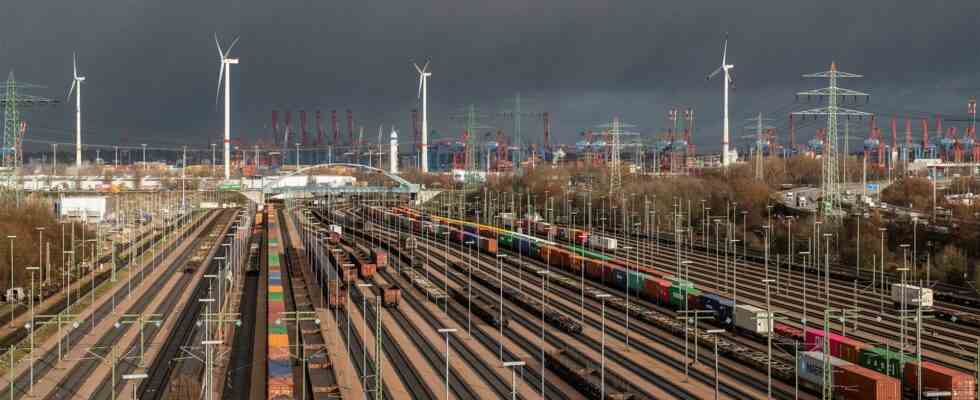Status: 07.10.2022 10:08 a.m
In view of the gas shortage, German imports have become more expensive than they have been in 48 years. Energy remains the biggest price driver. Inflation is therefore likely to remain high.
The prices of goods imported into Germany are rising more strongly again after the sharp upswing in the previous months had cooled off somewhat. Import prices increased by 32.7 percent in August compared to the same month last year, as the Federal Statistical Office announced today in Wiesbaden. It is the strongest increase since March 1974, when it was 35 percent.
Import prices had also risen sharply in the previous months, albeit with a weaker tendency. That is why the massive rise in prices came as a complete surprise: experts surveyed by Reuters had only expected an increase of 29.9 percent after import prices had risen by 28.9 percent in July.
Natural gas prices four times higher than a year ago
In view of the Russian war against Ukraine, energy remained the number one price driver: imported energy was around 162 percent more expensive in August than a year earlier. Compared to the previous month, the increase was almost 19 percent. The main reason is the sharp rise in natural gas prices.
“The high increase compared to the previous year is still primarily due to the strong price increases for imported natural gas,” the statisticians explained. These prices were four times higher than in August 2021. Compared to July alone, they rose by 48.2 percent. Electricity even cost 464.5 percent more on the exchanges than a year earlier. In addition, many intermediate goods also rose sharply in price.
Inflation could rise to eleven percent
Import prices represent one of several price levels that affect consumer prices. This indicates that inflation will remain very high in the coming months. Also as a result of the sharp rise in energy prices, many companies want to pass on the higher costs to their customers, as the ifo Institute recently found out in a survey. After that, all groceries, for example, are planning price increases.
“Of course, that contains social explosives, because household incomes are rising far less,” Ifo economics chief Timo Wollmershäuser told Reuters. “In any case, the inflation rate is likely to rise to eleven percent in the coming months.” In September, at 10.0 percent, it was the highest it had been in decades. From 2023, the gas and electricity price brake announced by the federal government should take effect, said Wollmershäuser.
Because of the high inflation, the ECB has already raised its key interest rates significantly. However, it is lagging behind many other central banks because the European currency watchdogs initially hesitated to tighten their monetary policy.

